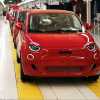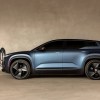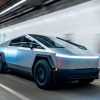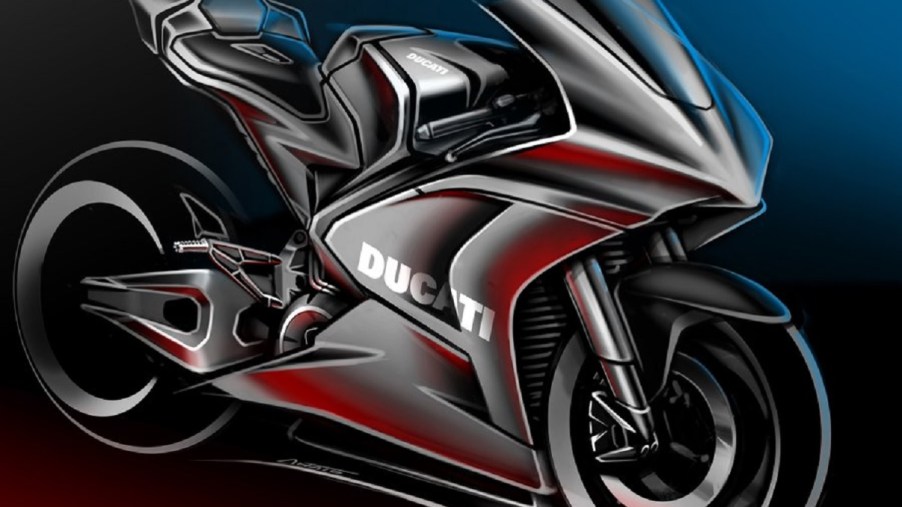
Is Ducati’s MotoE Deal a Sign of Electric Motorcycles to Come?
More manufacturers are getting into the electric motorcycle game, but with less immediate pressure than cars, a few hold-outs remain. One of those, so far, is Ducati. Although the Italian brand has released electric bicycles, it hasn’t committed to any other form of two-wheeled EVs. But the latest news out of MotoE might hint at a production Ducati electric motorcycle in the future.
MotoE has a new electric motorcycle supplier: Ducati
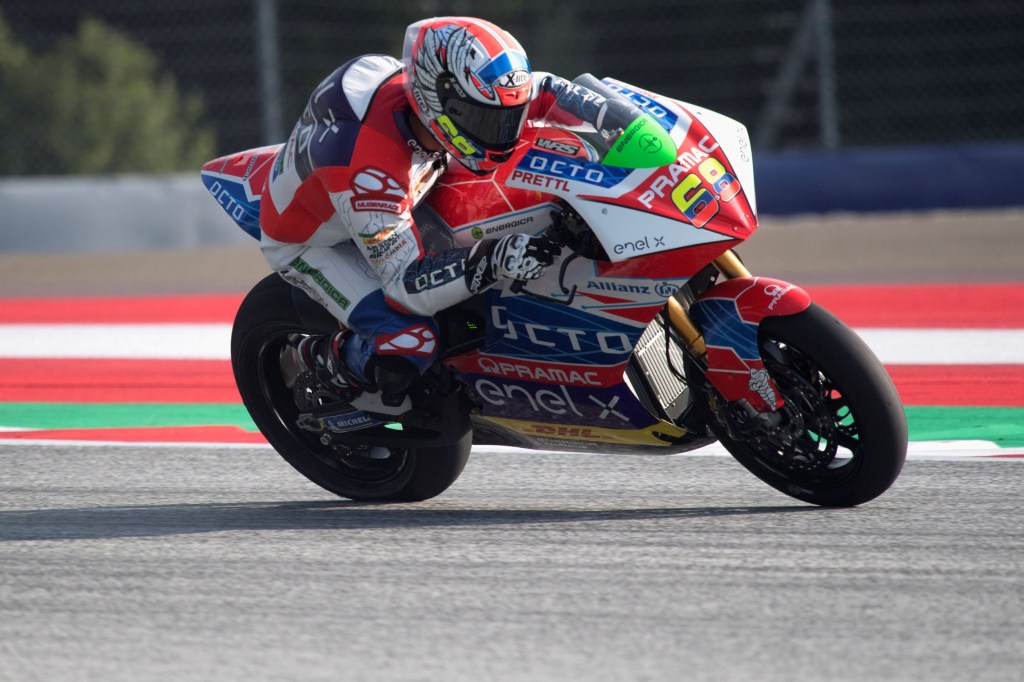
What Formula 1 is to cars, MotoGP is to motorcycles. And just like F1 has Formula E, MotoGP has its own all-electric class: MotoE.
While the electric motorcycles race on the same kinds of courses and at similar speeds, the class is set up like Moto2 in that it’s a ‘spec series.’ Also called a ‘one-make series,’ this type of racing sees every team getting powertrains, brakes, and sometimes whole bikes from specific suppliers. In Moto2, for example, Triumph is the engine supplier. And since 2019, Italian company Energica has been MotoE’s sole supplier, proving racers with Ego Corsa bikes.
But that changes after 2022. Starting in 2023 and running through 2026, Ducati will be MotoE’s sole supplier. That means that, just like Energica, it won’t only be providing individual bike components. It means Ducati will be building entire electric motorcycles for the racetrack.
Just one problem: it doesn’t make electric motorcycles. Yet.
Does the new MotoE deal mean Ducati has changed its mind again about electric motorcycles?
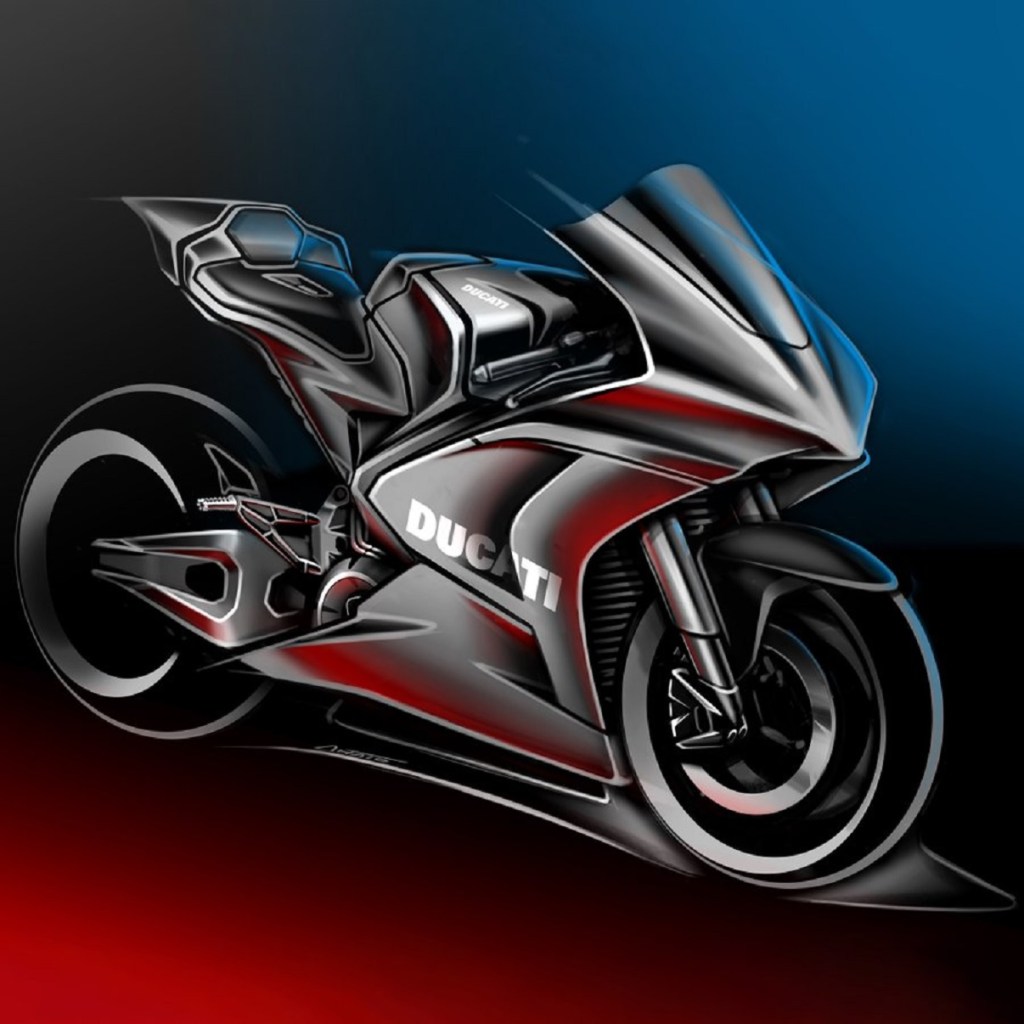
To be fair, Ducati is no stranger to making racing motorcycles on a production level. It even put one of them, the Desmosedici RR, on the road. And the brand’s reputation is built on racing. So, if it’s going to supply racers with electric motorcycles, there’s no reason that it couldn’t also make street-legal versions. Ducati CEO Claudio Domenicali said as much during the MotoE announcement. To quote, “We test our innovations and our futuristic technological solutions on circuits all over the world and then make exciting and desirable products available to Ducatisti.”
Still, the fact remains that, as of this writing, Ducati doesn’t make an electric motorcycle. And its stance on the matter has waffled over the years. In 2019, for example, Domenicali said that the company “’was not far from beginning production’ of electric motorcycles,” RideApart notes. But two years later, Ducati VP of Sales Franceso Milicia said, “’Will we produce an electric Ducati soon? No.’”
However, a lot can change in a year. For one thing, Ducati’s rivals, including Harley-Davidson, BMW, and Triumph have all at least announced plans for electric motorcycles. Secondly, Ducati is part of the Volkswagen Group. And, like essentially every other automaker, VW and its brands are going electric. Presumably, that includes Ducati as well.
And the topic of a production electric Ducati motorcycle isn’t idle speculation. At the MotoE announcement, Domenicali followed the line quoted above with this one: “I am convinced that once again we will build on the experiences we have had in the world of racing competition to transfer them and apply them also on production bikes.” Ducati’s press release says it even clearer: “The goal [of participating in MotoE] is to study how to produce, as soon as the technology allows, a Ducati electric vehicle that is sporty, light, thrilling and able to satisfy all enthusiasts.”
When could a street-legal Ducati EV arrive?
Officially, Ducati hasn’t confirmed anything about what its first production electric motorcycle could look like. Nor has it commented on what kinds of technologies it could use. However, Domenicali repeatedly stressed the importance of lightness during the MotoE announcement. And that extends as much to the batteries and their chemistries as to the rest of the bike. So, it’s not as simple as shoving an electric motor into a Panigale V4.
Plus, even after Ducati takes over MotoE supplier duties from Energica, a production bike won’t materialize immediately. It takes time for racing lessons to make it onto the street. As a result, Domenicali estimates that a production Ducati EV won’t arrive until 2025-2030, RideApart says.
For some, Ducati’s move to EVs might seem sacrilegious. But racing is changing, as is the motorcycle world overall. And Ducati, like the other brands, is changing so riders can still enjoy their wheels.
Follow more updates from MotorBiscuit on our Facebook page.
